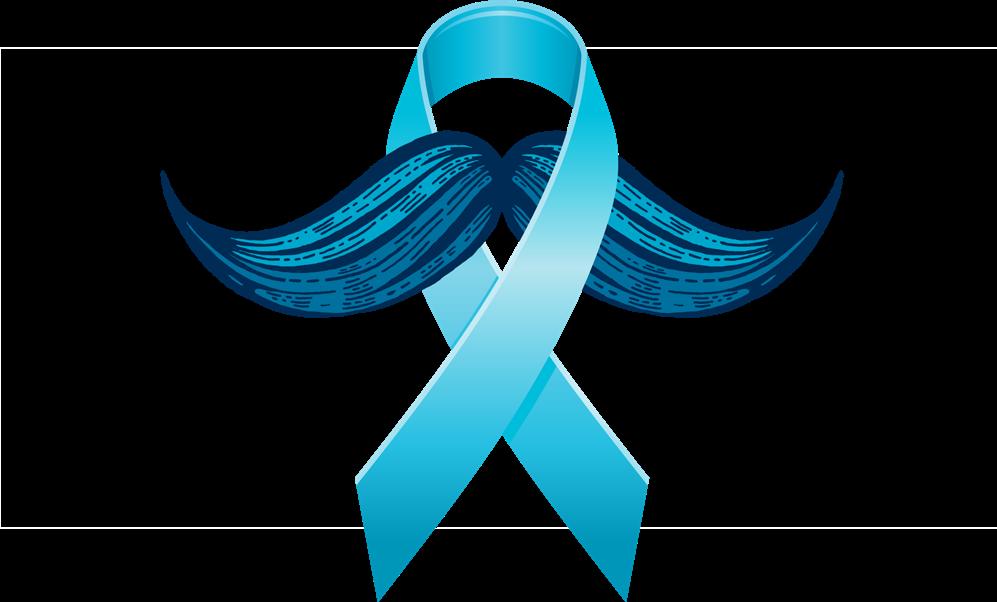&








We take an in-depth look at men’s health and alcoholism as a disease

– the annual celebration of men’s health, which takes place in the month of, you guessed it, November – aims to raise awareness of and money for projects tackling testicular cancer, prostate cancer, mental health and suicide prevention
Campaigners either grow moustaches during the month or raise money in other ways, such as participating in or hosting events.
November is also home to Alcohol Awareness Week, which focuses on reducing or stopping our alcohol consumption in order to live a healthier, happier life. Let’s take a look at the issues with some clinical advice for each topic.
In the UK, around 2,400 men are diagnosed with testicular cancer each year – that’s more than six each day. Men in their early 30s are the most likely to get it, and it becomes less common as men get older.
You should check regularly for any changes to your testicles. The ideal time to check is just after a warm bath or shower: hold your scrotum in the palm of your hand and check each testicle by rolling it between the thumb and fingers.
It’s perfectly normal for testicles to be a different size and length; however, if you notice any changes such as swelling, lumps, hardening or pain, you should seek the advice of your GP as soon as possible. These symptoms are usually a sign of infection, inflammation, fluid

build-up (hydrocele) or damage, but you should get them checked to be safe.
Many testicular cancers can be cured if treated early so it is important to check regularly and don’t delay seeking GP advice.

Prostate cancer is the most common cancer in UK males at 27%, having increased by 48% in males since the early 1990s. About 42,300 cases are diagnosed as prostate cancer a year, and the number is rising.

Prostate cancer is most common in older men. On average, each year 34 out of 100 of new cases are in men aged 75 to 79. It is more common in black Caribbean and black African men than in white men, and it is less common in Asian men. A man’s risk of developing prostate cancer depends on many factors, and it is more likely if you have a close relative who has had prostate cancer.
The prostate is a walnut-sized gland, whose function is to produce fluid, which mixes with sperm during ejaculation
The most common symptoms are related to urination and ejaculation and can include:


A need to urinate frequently, especially at night
Difficulty with starting urination
Week or interrupted flow
Painful or burning urination
Difficulty in having an erection
Painful ejaculation
Blood in urine or semen
to create semen. Prostate function is governed by the male hormone testosterone. The prostate sits just beneath the bladder and the urethra (the tube from the bladder to the penis) runs through the centre of the prostate gland.
In most cases, these symptoms are most commonly due to an enlarged prostate (commonly caused by benign prostatic hyperplasia (BPH) - a noncancerous growth of cells) and can be easily managed with lifestyle changes, medications if required or occasionally surgery if this is deemed necessary.
Other causes can also include prostatitis (infection of the prostate gland) or prostate cancer, so it is important to seek advice from your GP as soon as possible if you develop any symptoms.
Research shows that men are less inclined to speak openly about their emotional wellbeing, which is thought to be linked to societal and gender stereotypes and expectations.

As they say: ‘It’s OK not to be OK’. Men should feel safe to speak out and seek support and feel confident that they won’t be judged for doing so. Talking is not always easy, and data suggests that fewer men than women access mental health support.
Approximately one in eight men in the UK are thought to have a common mental health condition, such as depression or anxiety. For some, the pandemic brought to the surface additional emotional and psychological symptoms due to the change in behaviours across the globe and the increased sense of threat that most people faced.
Impoverished mental health can be a trigger for unhealthy behaviours such as alcohol addiction and men are more likely to use potentially harmful coping mechanisms, which could potentially become pervasive and lead to addiction. Sadly, men are at a higher risk of suicide than women with approximately 75% of those who die by suicide in the UK being male, with men aged between 40 and 49 appearing to be at greatest risk.
Please note: ‘Men’ in the context of our article may include men, trans women, people who are non-binary who were assigned male at birth and cis gender men; and ‘women’ may include women, trans men, people who are non-binary who were assigned female at birth and cis gender women.
If you are experiencing depression or feeling like your mental health is poor, speak to your GP as they may be able to help. It can also be beneficial to explain how you’re feeling to family and close friends so that they can offer support.
Lifestyle factors, such as maintaining a healthy diet, engaging in physical activity, spending time outdoors, practising good sleep hygiene, ensuring a good work/life balance and practising techniques like mindfulness and relaxation, can be of great benefit.
“As they say: ‘It’s OK not to be OK’. Men should feel safe to speak out and seek support and feel confident that they won’t be judged for doing so.”
As well as looking out for ourselves, it’s also important that we look out for each other. If you suspect a friend, loved one or colleague may be struggling, offer a listening ear, encourage them to talk and let them know that help is available and that they are not alone.
Starting a conversation with somebody about their mental health can be very helpful – it may be the first time somebody has asked, and it may offer a huge sense of relief to acknowledge that this is how they are feeling and that you care.
If you think someone is in immediate danger – if they tell you they have a plan or intention to act on thoughts of suicide, self-harm or harm to others –don’t leave them alone. Try to remove any means of harm or suicide from the immediate environment and seek further support – perhaps contact their GP on their behalf, call 999 if there is very urgent concern or accompany them to A&E and stay with them until they are seen.


Hearing that a friend, family member or colleague is feeling suicidal can be difficult, so make sure you also seek support for yourself if needed.
Sources: Cancer Research, NHS, Movember, Mental Health Foundation, Cancer Research UK, Public Health NI.


Alcohol Awareness Week is an annual event that aims to put the spotlight on alcohol consumption and change addictive behaviours before it’s too late. With close to 8,000 alcohol-related deaths in the UK last year, the more we can do collectively to spread awareness in our families and communities, the better.
The UK Chief Medical Officer’s guideline states that:
n To keep health risks from alcohol to a low level, it is safest not to drink more than 14 units a week on a regular basis
n If you regularly drink as much as 14 units per week, it’s best to spread your drinking evenly over three or more days
n If you wish to cut down the amount you drink, a good way to help achieve this is to have several drink-free days a week.

n 20% of the UK population do not drink alcohol
n To keep health risks at a low level, it is considered safest not to drink more than 14 units per week on a regular basis.
n The level of drinking begins to pose a health risk, i.e. more than 14 units a week.
n Drinking causes serious problems to the individual, the family, work, and society in general
n 24% of the population drink over the
UK Chief Medical Officer’s guidelines
n Recent statistics indicated that nearly 2.5million Britons drank more than 50 units a week (3.7% of the population).
n Periodic or chronic intoxication
n Uncontrollable craving for drink when sober
n Tolerance to the effects of alcohol
n Psychological and/or physical dependence
n There are almost 600,000 dependent drinkers in the UK.
Over the last century, the overall
amount of alcohol consumed per person in the UK has risen and fallen repeatedly. Since reaching a peak in the mid-2000s, consumption has generally fallen, although the pandemic has reportedly seen increases. Today, average consumption per adult is about 9.7 litres of pure alcohol per year – or about 18 units a week. Some facts:
n Higher earners are more likely to drink than those on lower incomes
n Older people are more likely to drink regularly - people aged 55-64 are more likely than anyone else to drink at higher risk levels, and are least likely not to drink at all
n Men are more likely to ‘binge drink’ than women (though this is less the case among the young)
n Youth drinking has been falling steadily. Most of the alcohol sold in the UK is bought by people who drink heavily. Indeed, the very heaviest drinkers – who make just 4% of the population - consume around 30% of all the alcohol sold in the UK.


Alcoholism is a disease – not a lack of willpower. It alters the part of the brain that controls a person’s motivation and ability to make healthy choices. Once it takes hold, it can be hard to shake loose – without the right help.

Alcohol dependence is characterised by craving, tolerance: a preoccupation with alcohol and continued drinking in spite of harmful consequences, e.g. liver disease or depression caused by drinking.
People with alcohol dependency may tend to gulp drinks, have extra drinks before going to social events, drink on their own, lie about how much alcohol they are consuming, drink on the way home and keep alcohol on them or nearby.
The following symptoms and signs of alcohol abuse may be seen:
n Recurrent intoxication, nausea, sweating, palpitations
n Blackouts
n Mood swings, depression, anxiety, insomnia, chronic fatigue
n Seizures, hallucinations, confusion
n Indigestion, diarrhoea, bloating, vomiting, jaundice
n Tremor, unsteady gait, pins and needles, memory loss, erectile dysfunction
n Other substance abuse, e.g. cannabis, cocaine, heroin, amphetamines, sedatives, hypnotics, and anti-anxiety medication
n Unexpected medication response (drug interactions)
n Poor nutrition and personal neglect
n Recurrent absenteeism from work
n Frequent falls or minor trauma (particularly in the elderly).
Features of alcohol dependence include:
n A fixed daily routine of drinking to avoid withdrawal (although some people binge drink then have periods where they do not drink at all)
n Drinking taking priority over other activities
n Increased tolerance to alcohol
n Repeated withdrawal symptoms such as tremors, sweating and agitation
n Relief of withdrawal symptoms by further drinking
n Awareness of the compulsion to drink
n Rapid relapse drinking resumed after stopping for a while.
If you drink over the units mentioned above and/or have some of the above symptoms, you may be a dependent drinker. This is someone who loses control over their drinking and has an excessive desire to drink. It is sometimes called alcohol addiction or alcoholism. There is a whole spectrum of alcoholism, from high-functioning to end-stage.
There is no single cause responsible for developing an alcohol-use disorder; it may be caused by a range of factors, such as the ones listed here.
n Offspring of parents with alcohol dependence are four times more likely to develop alcohol dependence
n Genetic studies (particularly those in twins) have clearly demonstrated a genetic component to the risk of
alcohol dependence. An analysis of research involving 9,897 twin pairs from Australian and US studies found the heritability of alcohol dependence to be in excess of 50%.
n Having a psychiatric/psychological condition as well, particularly depression, anxiety, post-traumatic stress disorder (PTSD), psychosis and drug misuse.
n Stress, adverse life events and abuse Biological factors
n People from ethnic minority groups as a whole have a lower prevalence of hazardous and harmful drinking compared with the white population
n 20% of Chinese and Japanese cannot drink alcohol because of an inherited enzyme deficiency. This may also apply to some other races.
n Men are twice as likely to be alcohol dependent than women

n Publicans and brewers have an increased access to drink and are at a higher risk
n Heavy drinking is seen as the norm in some jobs, e.g. sailors.
n Homelessness: up to a half of all homeless people are alcohol dependent.
“Alcoholism is a disease –not a lack of willpower.”
n If you have one or two heavy drinking episodes a week, you increase your risk of injury and/or long-term illness (including cancers of the mouth, throat, bowel, liver and breast, as well as stroke, liver disease and pancreatitis);
n You are more likely to be involved in accidents and injuries requiring hospital treatment, violent behaviour and being a victim of violence;
n You increase your risk of unprotected sex which can lead to pregnancy or sexually transmitted infections (STIs);
n Alcohol is expensive;
n Drinking too much may lead to alcohol poisoning, with associated vomiting, fits/ seizures, falling unconscious or dying.
Many people with alcohol-use disorders will recover without specialist treatment and many will reduce their alcohol intake following a change in circumstances, e.g. parenthood, marriage or taking on a responsible job. Recognising the symptoms of alcoholism

can make a tremendous difference to getting proper treatment and heading down the path to recovery. If you or someone you know has a problem and wants to do something about it, that is one of the most important steps you can take.
A third of “problem drinkers” return to normal drinking without a doctor’s intervention.
Group therapy, Alcoholics Anonymous and long-term counselling may be helpful. They have never been subject to clinical trials but are helpful for many. For some problem drinkers, abstinence may be best. For individuals where
alcohol is not causing personal or social problems, aiming for controlled intake may be acceptable. Be guided by the professional advice and your experience.
For people who are alcohol dependent, the next stage of treatment may require medically assisted alcohol withdrawal (with medication, if necessary, to control the symptoms and complications of withdrawal).
Management of alcohol withdrawal programmes/detoxification involves pharmacological treatment (drugs to help with withdrawal); psychological and social support (understanding alcoholism and learning how to avoid relapse); and/or pharmacological and psychological prevention of relapse (sometimes medication may be given to make drinking physically unpleasant, combined with the two above).
There are community-based assisted withdrawal programmes or inpatient and residential assisted programmes, depending on the level of care required, budget and the services available locally.
To access treatment, the best step is to speak with your GP. They can make an assessment and diagnosis and decide on the most appropriate treatment and management.
For those with a significantly high alcohol intake, stopping suddenly can result in seizures, which may be life-threatening. Therefore, if you are drinking heavily, it is important that you see your GP and undergo detoxification programme under specialist care.
It should be noted that treatment of alcohol withdrawal is only the beginning of rehabilitation and, for


many, a necessary precursor to longer-term treatment, as habits may be ingrained. Withdrawal management should not be considered as a standalone treatment.
For many, no matter the severity of their dependence, stopping is not the hardest part – the most difficult part is staying stopped. This is because drinking has altered the part of the brain that controls a person’s motivation and ability to make healthy choices, i.e. not drinking.
For a person who genuinely wants to stay stopped, there are some useful programmes out there. Talking with people with a similar condition may be an incredible relief – to realise that one is not alone with this problem and that recovery is possible.
Sources: NHS, Drink Aware, Hazeldon Betty Ford, AA, Alcohol Change, Drinkline, ONS, Daily Mail, BMA, NICE
At Health Partners we offer a full range of tailored health and wellbeing services.
Our thinking is innovative. We constantly develop new responses and tools designed to address the health and wellbeing challenges that face your business and people.
Our commitment is total. We invest in our services, creating new ones and keeping in step with every client. We constantly explore new ways of working and make no compromises in the quality of our services.
Simply put, we are here to help people be their best.